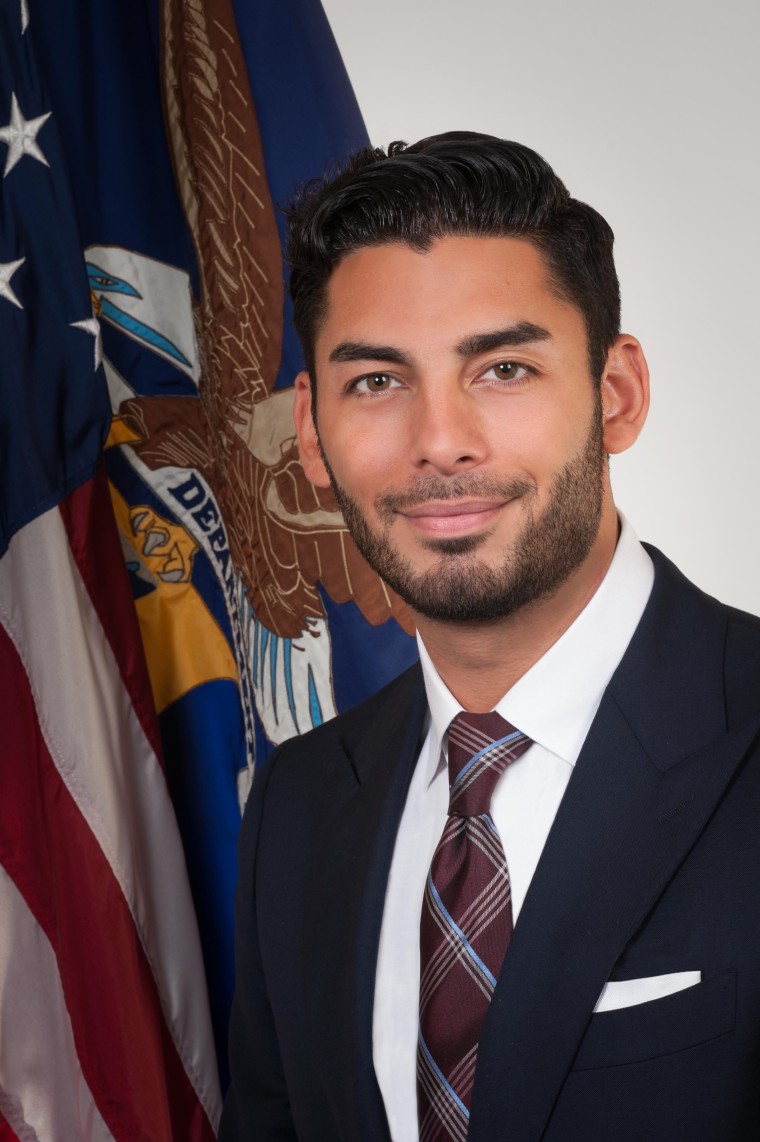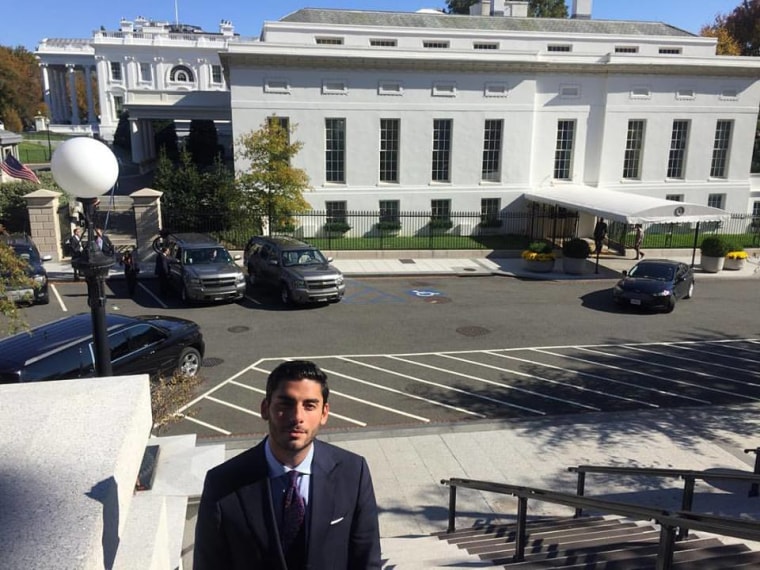WASHINGTON, D.C. — History will look back at this election with mixed feelings. Among many things, we’ll remember this as a time when it was both challenging and empowering to be diverse in America.
But I can assure you, it's where the ultimate comeback stories are written.
It shouldn’t be surprising that millions of Americans still struggle with the idea of America. It’s a radical idea after all, this notion of a country with roots from every nation.
Think about it, we are the only civilization on earth ever to be founded on this defiant worldview: that our individual differences don’t outweigh our common humanity. In many ways, America is still ahead of its time.
But our warm welcome to the world, engraved on the Statue of Liberty, still rings true for millions of families today, including mine.
“Bring me your tired, your poor, your huddled masses yearning to breathe free.”

That’s why I love this country. Only in America can the son of a Hispanic woman from the barrio and an Arab man from an occupied territory have the freedom to reimagine his life and pursue his dreams.
It's impossible to explain how surreal it is to spend your early years with your family under siege by American-made helicopters and F-16s that leveled entire neighboring buildings on your block. And how surreal it is to then spend the second part of your life working for the United States government, entrusted with serving the American public and being called “sir” by Secret Service agents every morning.
It’s not the perfect love story, but I know what I've witnessed in my life is nothing short of an American miracle.
I worry about those who’ve lost hope in the American dream and no longer believe in comebacks. Too many people feel like their hopes, dreams and even their lives don’t matter. They no longer believe in the alchemy of America, a place where you can turn your pain into purpose.
RELATED: American Dream: After Qualifying For DACA, Young Immigrants Buy Homes
My father, Yasser Najjar, saw both his parents gunned down right in front of him when he was only eleven years old. Orphaned and outlawed, my father moved across Egypt, Lebanon, and Morocco in search of a new home. On his eighteenth birthday, he found himself at a critical crossroads: continue seeking refuge across the Middle East, or move westward to America.
He chose America, and America chose him. Today, Baba is a law abiding, taxpaying, American Muslim who has devoted his life to promoting peace between Israel and the Palestinian people. His pain was turned into purpose, to make the world a better place for his children.
My mother, Abigail Campa, the modest Mexican Catholic daughter of an orphaned migrant farmworker, showed me through a divorce, a broken heart, being broke, different jobs —including working as a family doctor's receptionist, applying to work at Wal-Mart in her 50s, and eventually working in real estate — that you can dust yourself off and start again. She showed me there's dignity in a hard day's work, and that your work doesn't define you, it reveals you.
My mother repeatedly inconvenienced her life for mine, whether it was choosing to live in a war zone just so her boys could have a father or interrupting her work to drive me home from school and to soccer games, church and band practice. Her pain too was turned into purpose, to show her children all true love can do.

I’ll never forget watching my mother weep when I was 9 years old. My abuelita flew from San Diego all the way to Tel Aviv to visit, only to be turned away. The second Intifada -- a brutal war between Israel and the Palestinian people -- broke out the hour she landed. Nobody could enter, and nobody could leave. My mom’s source of hope was so close, yet so far.
I vowed to never show weakness or let her see me cry. So I didn’t cry when we said goodbye to our family in San Diego to live in the Palestinian territories for a few years. I didn’t cry when I watched a boy my age, Muhammad al-Durrah, get shot and killed while hiding behind a barrel. I didn’t cry when we had to shelter in place at my Catholic school to hide from the bombing.
I didn’t cry when a military hummer crashed head on into our car, burning my back, fracturing my thigh, breaking my mother’s arm and putting my younger brother in a coma. I didn’t cry the night they cut off the electricity to all of Gaza City, and my mom, stepmom, dad, younger brothers and myself hid in the dark corner of a cold kitchen floor as our neighborhood was bombed. I didn’t cry when we had to leave Baba behind and finally return to America in August 2001.
RELATED: Opinion: Trump's Immigration Plan? Demonize Immigrants, Latinos — Again
I didn’t cry when war clung to our lives like a disease and followed us to America. I didn’t cry when 19 terrorist hijackers took two great symbols of American innovation and industry — the skyscraper and commercial airplane — and used them not to build or create, but to kill and destroy. I didn’t cry that week when the Islamic school I attended was vandalized and declared unsafe to study or pray in.
I didn’t cry on Election Day after working alongside hundreds of people who volunteered their labor and love to elect a man of color — the son of a Muslim father and single mother — President of the United States. I didn’t cry when I left the only two people I’ve never separated from, my mom and younger brother, to pursue my dreams in Washington, DC.
It was January 17, 2013 and there I was, gawking at that grand, glorious, mysterious place on 1600 Pennsylvania Avenue, where Lincoln still walks at night.
After not being considered Arab enough in Gaza, Latino enough for the barrio, or American enough in my own country, after so many shut doors, the door to all others finally opened. On that day, in those hallowed halls, I cried.
RELATED: 'Bigotry': Trump's Escalating Attacks on Judge Rile Latino Legal Experts
After a life of rejection, I was accepted to serve at the White House. Years of imprisoned tears were finally set free. The pain was given purpose, to live to tell you this story.
Not a single day goes by when I don't hear from a family member or old friend who is still shocked that someone with my background has been called to serve in this place. It flies in the face of everything my communities think America is. They see what America can be for them. It gives them the audacity of hope.
So, even in our darkest hours as a nation, and there have been many recently, I still believe that there’s nothing wrong with America that cannot be cured with what is right with America.
Don’t let anyone tell you our differences are too vast to bridge, or that your individual struggles are too hard to overcome. Chase the American dream, have faith in the alchemy of America, turn your pain into purpose and begin writing your own ultimate comeback story.
Ammar Campa-Najjar is a Mexican-Palestinian American serving in the United States government.